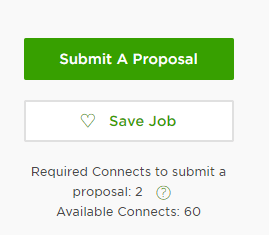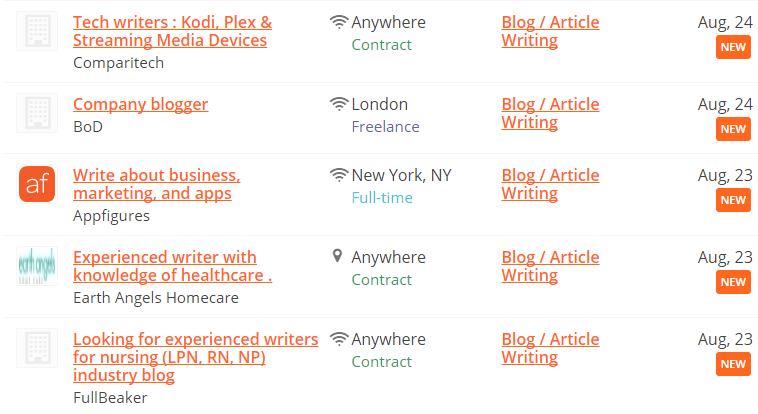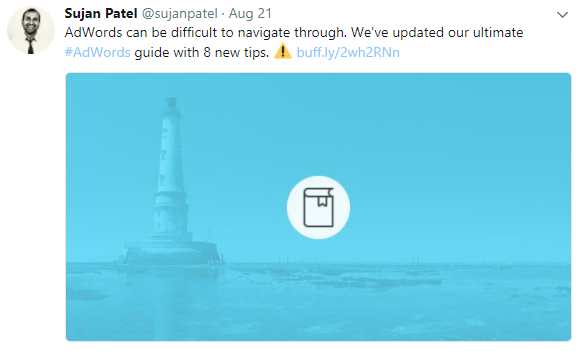Whether you’re new to the freelance writing gig or not, you know just how tough it can be to land your first few clients.
Freelance writing isn’t a joke. It’s not something you decide to do one day on a whim…. It’s something you do because you’re passionate about writing!
Not to mention, being able to work at home in your PJs is always a plus!
From one freelancer to another, I know how tough it can be to score the big bucks. I’ve dealt with scammers, crooks, and downright crappy clients.
I’m here to save you some headaches. Today, we’re going to talk about freelancing for yourself while staying away from websites that provide little value.
One site, in particular, actually: Upwork.
You read that right, dear reader. We’re going to talk about why freelancers (perhaps even you) should stay away from Upwork.
Now that I have your attention, it’s time for you to sit back, relax, and keep an open mind as I dive into the flaws surrounding Upwork.
Things You Should Be Aware of When Starting On Upwork
Many freelancers who are just starting out turn to Upwork in hopes of finding a solid client or two. However, there’s a problem with that.
Upwork is basically a freelance writer’s wasteland. It’s filled with tons of competition and, unless you’ve previously worked for someone on Upwork to give you a stellar review, you’re basically ignored by nearly everyone looking for a writer.
Think about it from a client’s point of view for a minute, though. Would you rather hire someone with ten or more reviews on how excellent their writing is, or take a chance on someone who has zero reviews?
You’d pick the person with the best reviews, right? Unless, of course, you’re looking for someone to write something for cheap.
A lot of the client’s on Upwork will work with fresh freelancers for a lower price. This means you won’t get the bang for your buck and the work really won’t take you anywhere.
Upwork’s Proposals
Upwork has a very unique way for freelancers to find work. They give freelancers something called “connects”, which is kind of like currency.

It usually costs 2 connects to submit a proposal. There have been times, however, where I’ve seen a job that cost 4 (or more) connects to apply.
While these jobs are rare, I don’t recommend submitting a proposal to them unless you’ve got a few kickass reviews from previous clients on your Upwork profile.
If you stick with jobs that only ask for 2 connects, you’ll be able to apply to 30 jobs. This is where it gets a bit sticky, though.
Most freelancers apply to nearly 30 jobs a day when first starting out (if they’re ambitious, I should say). Because your connects are supposed to last you an entire month, well… you see the issue with that, right?
After each month passes, you’re automatically given 60 more connects to work with. You can always opt to pay for connects, but since you’re on Upwork to make money (and not spend it) I’m not sure that’s a smart idea when you’re first starting out.
Especially when there are plenty of other places to find freelance writing work (more on that later, though)!
Upwork’s Fee
So, you’ve found your first client. That’s great! Whether they’re paying you what you’re worth or not, you’re happy to at least get your foot in the door.
Until you realize that Upwork takes 20% of the money you make with each job you complete.
To show this to you first hand, take a look at the screenshot I took from the first job I completed on Upwork:

The job was fairly simple. I was to write an article on eCommerce fashion.
This client paid me $150 for writing this article (as you can see above). I was excited to get my first payment through Upwork, until I saw that they took $30 from me.
At this point, I felt as though Upwork was a rip off – at least for me. I wanted to get the full amount! I put in the hours, after all!
I decided to look into Upwork’s service fees to see what this was all about…

Now, I don’t know about you, but I’m a full-time freelancer. I have bills to pay, just like everyone else. When I see that 20% of my money is taken from my pay, I get a bit irritated.
If you’re thinking, “Yeah, but if you were working a ‘real’ job at a ‘real’ place, they’d take money out for taxes,” you couldn’t be more right.
Freelance writers, however, pay their taxes out of pocket at the end of the year.
For a website to take a portion of my income? It struck a chord with me. If this doesn’t bother you, however, go for it!
After all, I’m not going to tell you not to use Upwork, but I am going to tell you the truth about the platform.
Upwork’s W9 Form
If you’ve never used Upwork before, this one might surprise you. If you started freelancing on Upwork, you’ll know what we’re talking about from the get-go.
Upwork has you fill out a W9 form before paying you. Which, to be completely honest, doesn’t happen too often when you’re a freelancer.

Most clients don’t ask you to fill out a W9. As long as you provide them with your PayPal account (or next best thing) and the best way to get in touch with you, they’re 100% satisfied. Well, as long as you continue to provide them with incredibly valuable posts!
Is this a deal breaker? Not really! It’s just a nuisance to deal with for some. Some people feel more secure by filling out a W9 before working online, though.
Personally, I don’t mind one way or another. Upwork was the first place I had to fill out a W9 for a freelance job, though, and I’d be lying if I said it was a bad thing.
How To Be A Freelancer On Your Own
Now that you’ve read about some of the downsides to Upwork, let’s move on to ways that you can succeed as a freelancer on your own.
While this may be scarier to do, I have faith that you’ll be able to find clients with the snap of your fingers… if you follow the next few steps, of course!
Step One: Figure Out What You Want To Write About
Before you can dive into freelance writing, it’s important to figure out what niche you want to write about.There are literally hundreds (if not thousands) of niches to choose from, too. For example:
- Content Marketing. If you’re looking to provide your clients (and readers) with actionable value, content marketing may be the niche for you. Take this article, for a better example.
- SEO and Keyword Research. Nearly everyone who owns a blog knows just how important keyword research and SEO is. If you want to help not only new bloggers, but bloggers that have been around for a while (but could use an upgrade), perhaps this is the route you should take. Read this article to see what you could be writing about!
- Technology. Are you an innovative science geek? Welcome aboard! If you love discussing new technology, current technology, and future technology, well… this niche is for you. Here’s a cool article to get you started!
- Video Games and AI. Are you an avid gamer? Are you excited about AI? You’ll fit into this niche well! Take a look at this interesting article!
- Pop Culture. Do you enjoy writing about celebrities? Do you want to write funny articles about memes? Who doesn’t? Check out this article to get a feel for this niche.
- Food. If you grew up baking with your grandma on the weekends, or you just have a love for food in general, you could make a living writing for clients about recipes! Check out this delicious article while you’re at it!
See what I mean? The list could literally go on and on. We could be here for hours just talking about niches!
While you could write about nearly anything if you put your mind to it, it’s important to brand yourself with a specific niche that you won’t mind writing about for a while.
Finding your niche will bring you closer to clients, too. If you were to reach out to someone who needed writers for their paleo blog and you mentioned that your niche is around the paleo diet, that client will be inclined to choose you over your competition.
Take a look at this article for more inspiration when searching for your niche. You’ll thank yourself in the long run!
Step Two: Find Your Ideal Client
Yay! This section is one of my favorites. Are you ready to learn how to land your first client? I’m excited for you! Let’s dive in!
First thing’s first, you’ll want to find a good website with an abundance of clients looking for writers.
One of my personal favorite websites to visit is Freelance Writing Gigs.

Freelance Writing Gigs posts daily articles, as well as jobs. Note: These articles are incredible, actionable, and will make you a better writer.
Each morning, someone from the Freelance Writing Gigs’ team compiles a list of jobs currently available for freelancers. These jobs range anywhere from blogging, copywriting, paid internships, and general freelance jobs.
It’s hard not to find a kickass writing job within your niche while on this site. Another personal favorite of mine is Pro Blogger.

As you can see, Pro Blogger makes it easy as pie to find something worthwhile. From tech to healthcare writers and everything in between, you’ll find a freelance job within your niche in no time.
Another excellent way to find a job is Linkedin.
A general rule of thumb to find steady work on Linkedin is to connect with people who work for companies you’d like to write for. If you’re interested in Entrepreneur, for example, connect with some freelancers who currently write for them!
Be sure to join Linkedin groups, companies, and even connect with hiring agencies, too.
You can also join Facebook groups if you’re looking for a freelance writing community! I recommend checking out 8760 Challenge. You’ll find tons of helpful (and like minded) freelancers to connect with!
Step Three: Blow Your Potential Clients Away
This section will teach you how to go above and beyond for your clients. Why would you want to do that?
Because they’ll keep coming back to you! They may even send you referrals when they see fit.
When you first apply to a job, you may feel a bit nervous. Did you say the right things? Did you explain who you were well enough?
Every single freelancer has been in your shoes before. And, every single one of those freelancers has dealt with the cold, harsh words: “Thank you so much for applying, but we’ve decided to go with another candidate.”
Rejection sucks. But, it’s something that you’ll have to get used to, young grasshopper. You have to hear no a few times in order for your very first “Yes!” to mean that much more.
To ensure you’re sending your potential clients a good email, you could say something like:
“Hey, [their name or business]!
My name is [your name]. I came across your job listing on [wherever you found it], and I’m very interested!
I have a passion for learning, adapt quickly, and can perform under tight deadlines.
While I’m new to writing and don’t have much to show you, I would be more than willing to write a trial article for you. This way, you’ll be able to see my talent first hand!
I look forward to hearing back from you!
Cheers!
[Your name]”
Obviously, you can change this up to make it sound like you, but you get the idea. By saying that you’ll write a trial article for your client proves that you want the job.
And, trust me, clients need to know that you’re committed to the job you’re applying for before they even take you into consideration. Think about how many emails they get per day after posting a job listing.
If your application doesn’t stand out, you may not hear back from them!
If they agree to this, but don’t give you a topic to write about, take a look at their website to see posts they’ve written in the past. This way, you’ll get a general idea of what they’re looking for (and you’ll see first hand the type of writing style they like). Double win!
Step Four: Share Your Posts
This is one of the most important steps!
Be sure to share your work with your social channels. Not only will your friends and family be able to read these posts, but potential clients may get wind of them, too. Especially if you use hashtags.

Take this tweet by Sujan Patel, for example. Because he used a hashtag before writing AdWords, everyone who searches that keyword on Twitter will see his tweet.
This can be you, dear reader. If you write up a post about nanotechnology and hashtag it, you can bet your bottom dollar people searching for new information will click on your post.
Some Parting Words
Before I send you off to become a freelance writing master, let’s go over some key takeaways.
- When using Upwork, you’re not really in control. Upwork takes a portion of your profit, has you fill out a W9 form, and only gives you 60 free connects to reach out to potential clients for the entire month.
- Finding your niche ahead of time will save you headaches in the long run. It’s important to write something you feel passionate about!
- As much as it sucks to hear no, think about how riveting it’ll feel when you get your first “Yes!”
- Hashtaging is a great way to reach out to thousands of strangers. It allows them to view your post and reach out to you (which could lead to more clients).
Now it’s time for you to find your freelance superpower! Register today to build a creative freelance business that you love!













